A 15-image series.
Occasionally I rerun a favorite older post. I thought today would be a good time to rerun this one as I eagerly anticipate two things – the return of our Swainson’s Hawks from South America and the long-delayed arrival of ‘real’ springtime here in northern Utah, which is forecast to begin tomorrow. Finally!
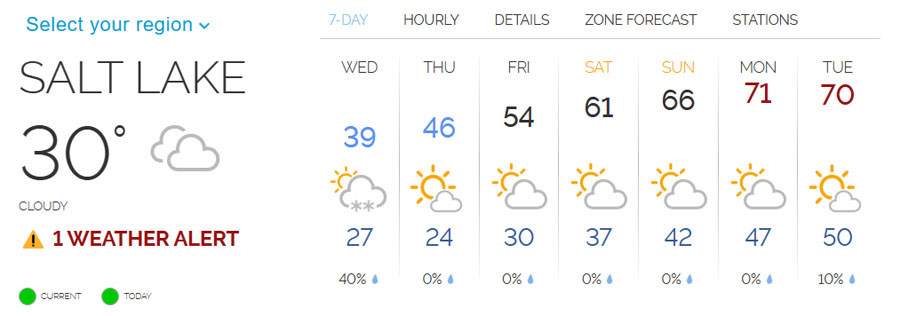
At my house more than a foot of new snow has fallen in the last two days so the 70° temps and mostly clear skies in our forecast have all of us drooling in anticipation.
I photographed these Swainson’s Hawks in Beaverhead County, Montana in early May of 2015. For this version of the post I’ve edited the text, tweaked the formatting and changed the title.
Five days ago I photographed an entire mating sequence of a pair of Swainson’s Hawks in Beaverhead County, Montana. I’ve photographed mating raptors before but those series of images were short and the vantage point of the viewer was usually from the front or side. This time I got 93 photos of the behavior from mostly behind the birds so some of the mating images are pretty ‘clinical’ and have little eye contact but I think they show an interesting perspective on the behavior.
Image techs for this series of photos are in the range of 1/1000 to 1/1250, f/6.3, ISO 800, Canon 7D Mark II, Canon EF500mm f/4L IS II USM +1.4 tc. I wasn’t particularly close to the hawks when it happened but that helped me to keep both birds in the frame and get them sharp.
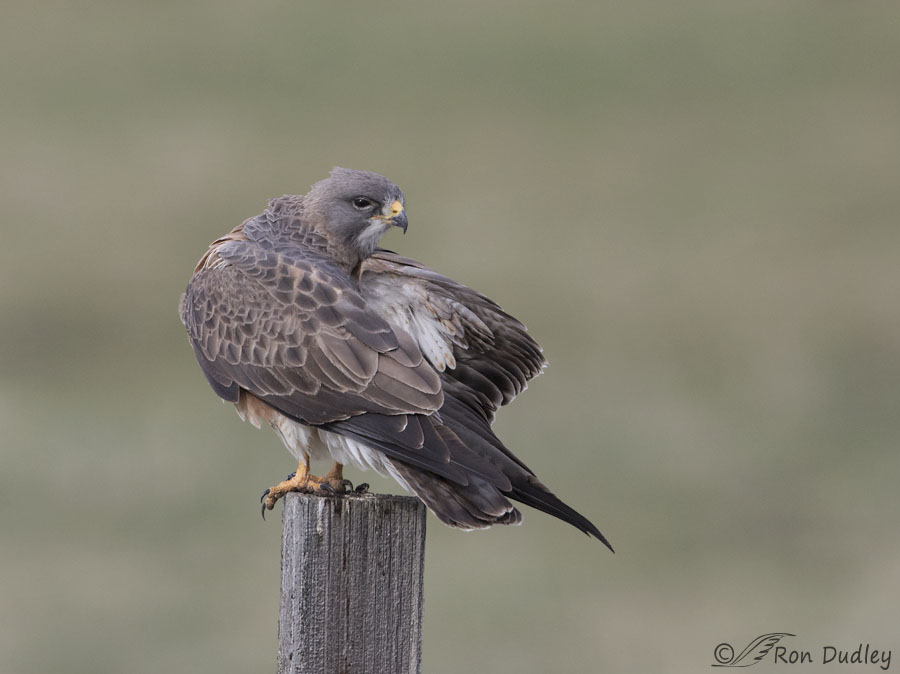
It all began when I was photographing this male Swainson’s Hawk perched on an old fencepost. When he pooped I thought he might be about to take off but instead he began a short preening session.
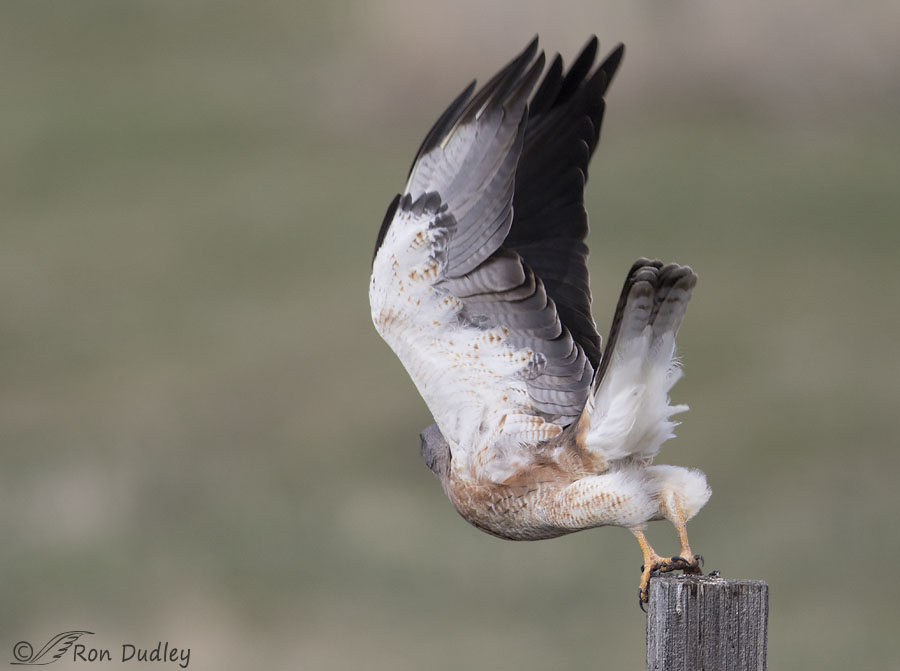
But eventually he did take off. In this situation, with him taking off away from me, I’d normally look away from my viewfinder and watch the bird with my naked eye but for some reason this time I kept him in my viewfinder and suddenly…
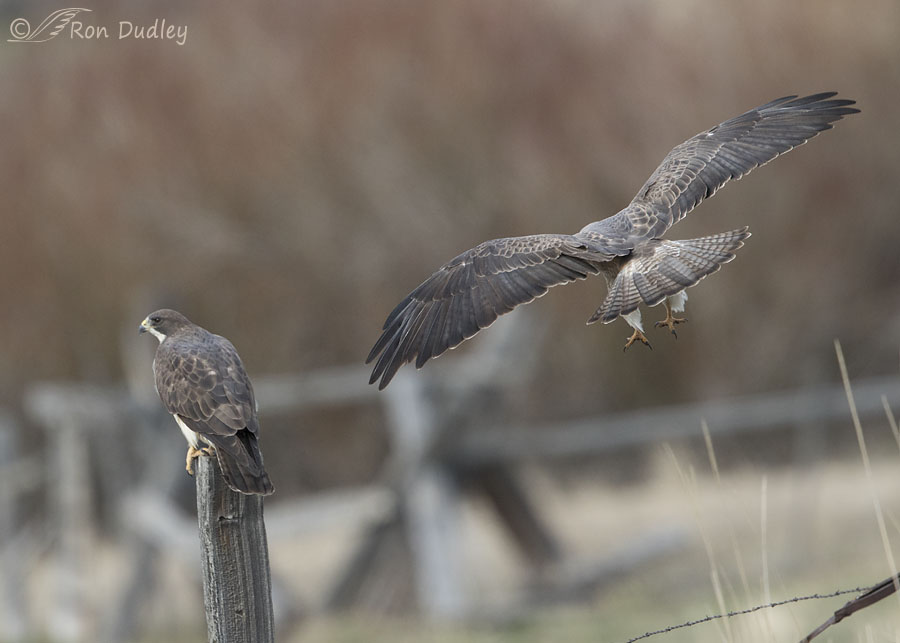
I could see that he was approaching another Swainson’s Hawk on a fencepost down the line – a bird that I didn’t even know was there!
At this point I thought the first bird might land near the second, or that there might even be a fight, so I just kept firing away and hoped I’d capture something interesting.
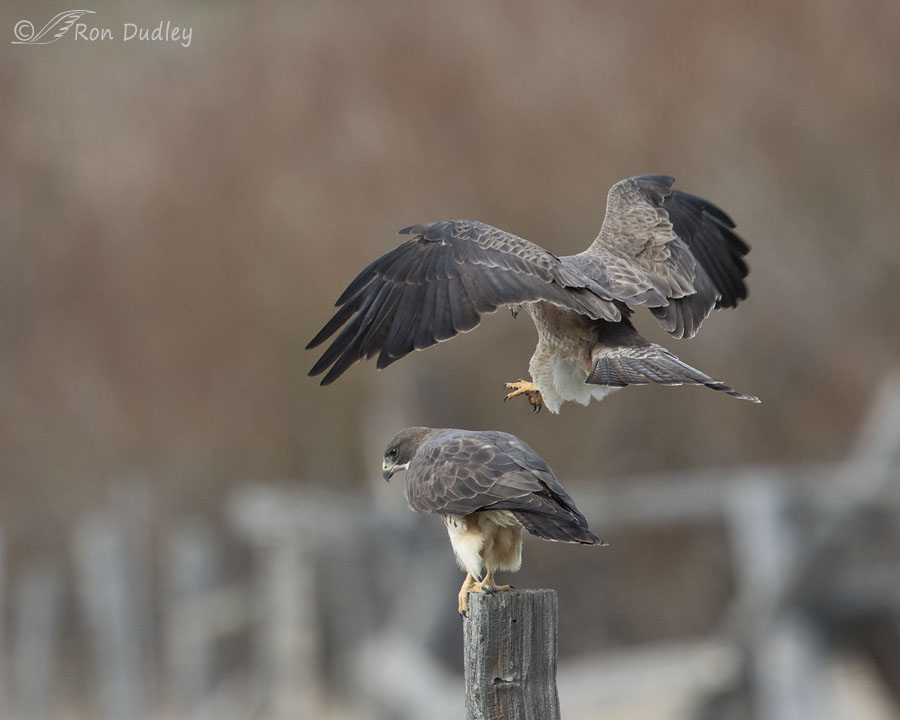
But these birds had mating in mind. In some of the earlier images, as the male approached the female, she had her head turned toward him and was calling to him but here she’d stopped calling and was bracing for him to land on her back.
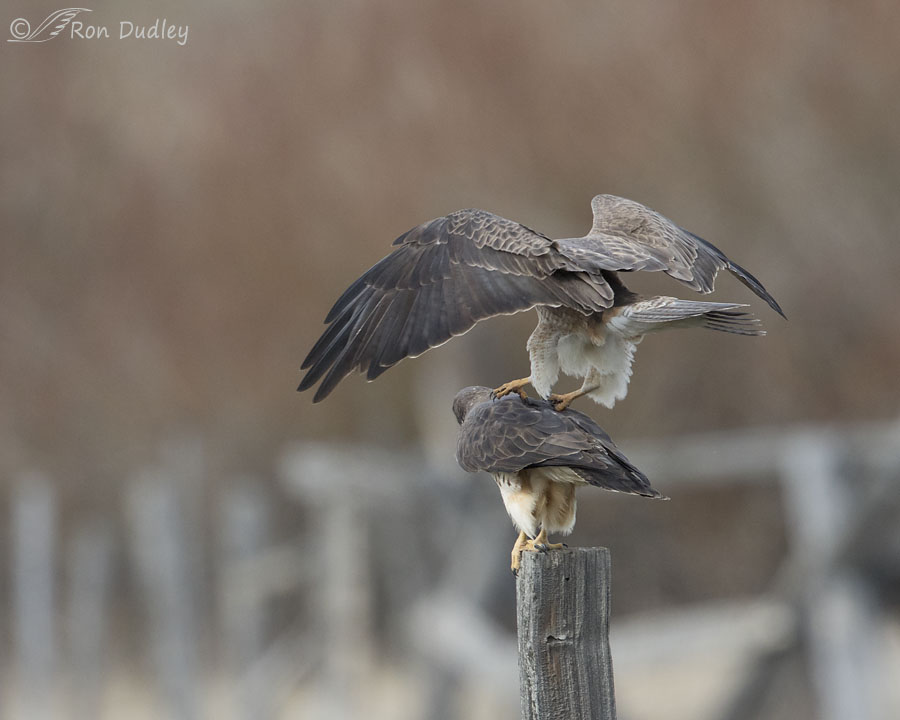
Touchdown.
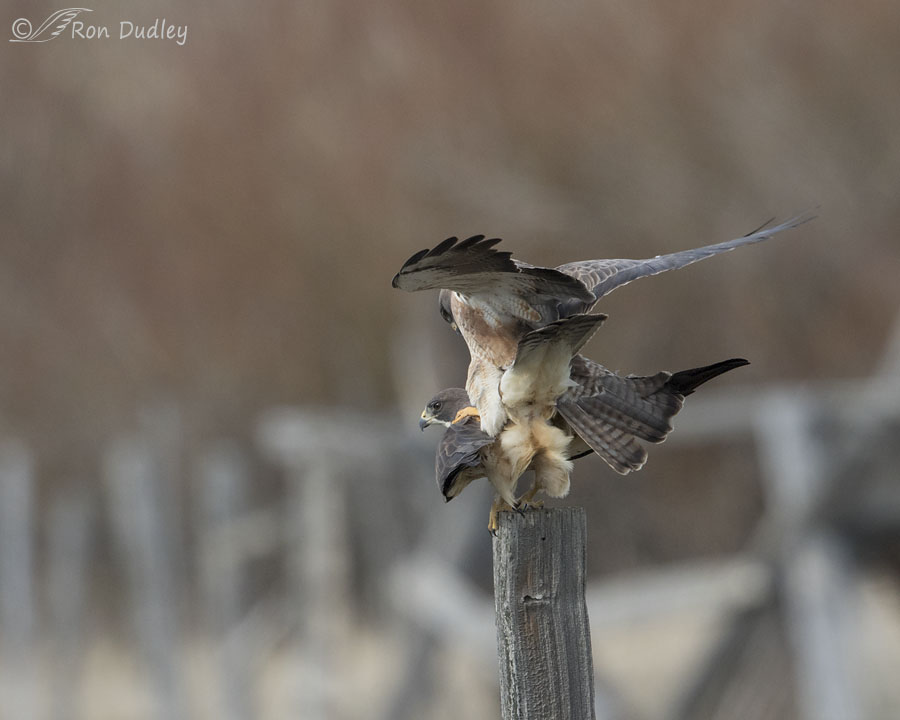
Balance is always precarious for both birds in these situations but especially for the male. Even with her obvious assistance he struggled to stay on her back.
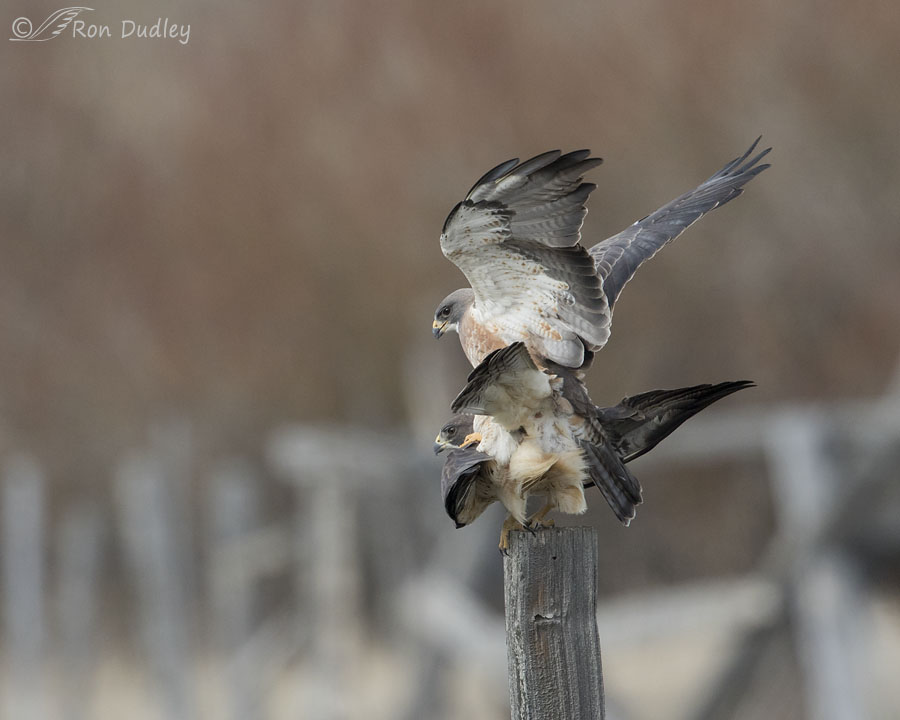
Here she’s beginning to present her cloacal opening as the male gets into position for sperm transfer.
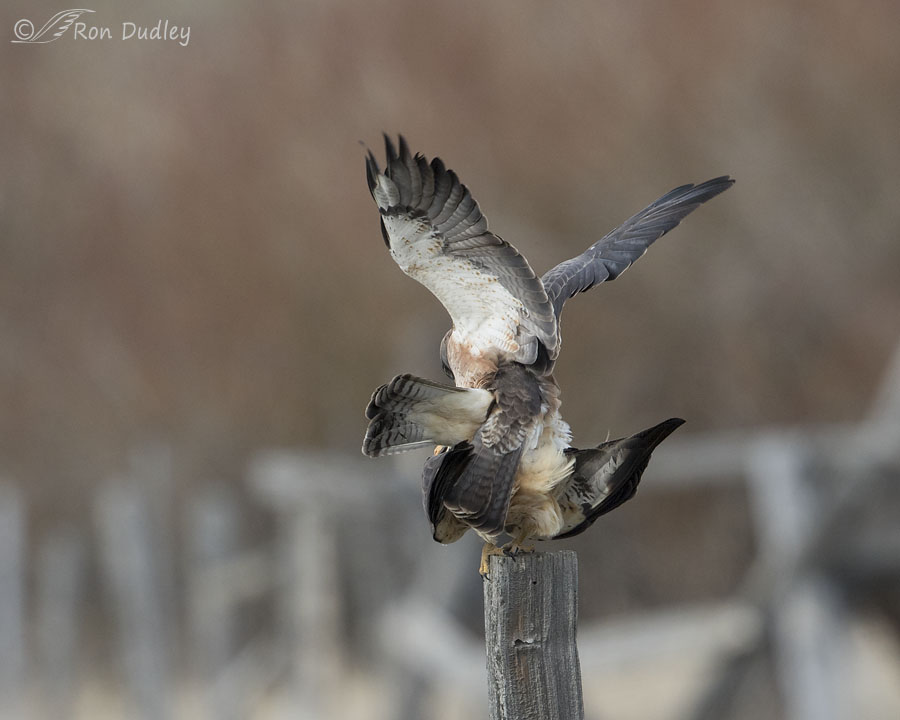
Contact between cloacal openings of male and female birds for sperm transfer is commonly called the “cloacal kiss”.
It’s interesting to note that some male birds (ostriches, cassowaries, kiwi, geese and some swans and ducks) have an intromittent organ (penis) to facilitate sperm transfer and possibly prevent water from washing the sperm away during copulation. Raptors lack such an organ.
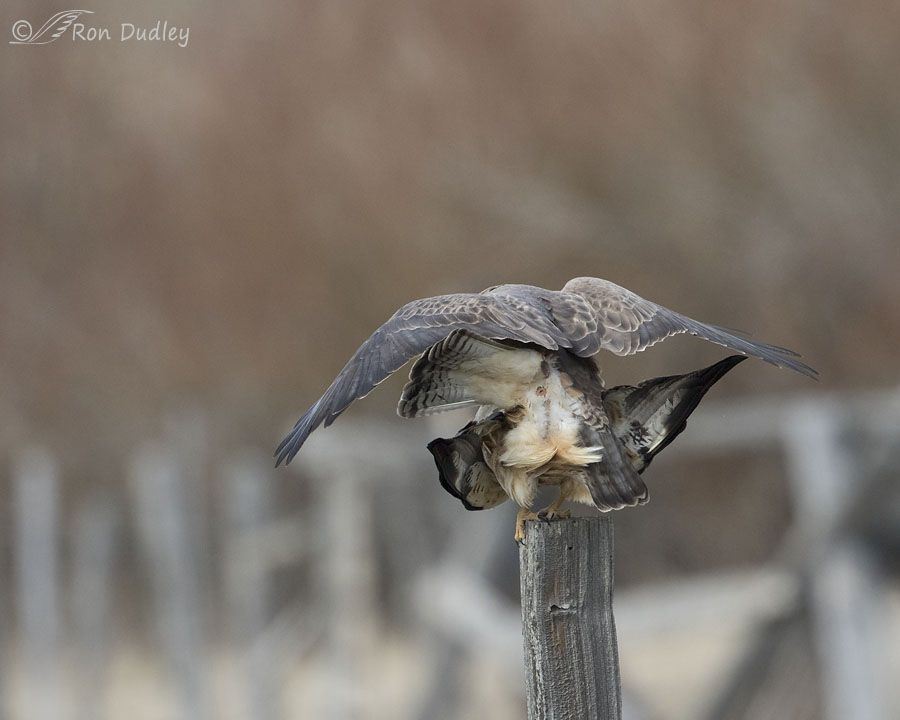
Here we get a good look at the cloacal opening of the female just after the male pulled his tail away. Successful sperm transfer may not have occurred on this first attempt because…
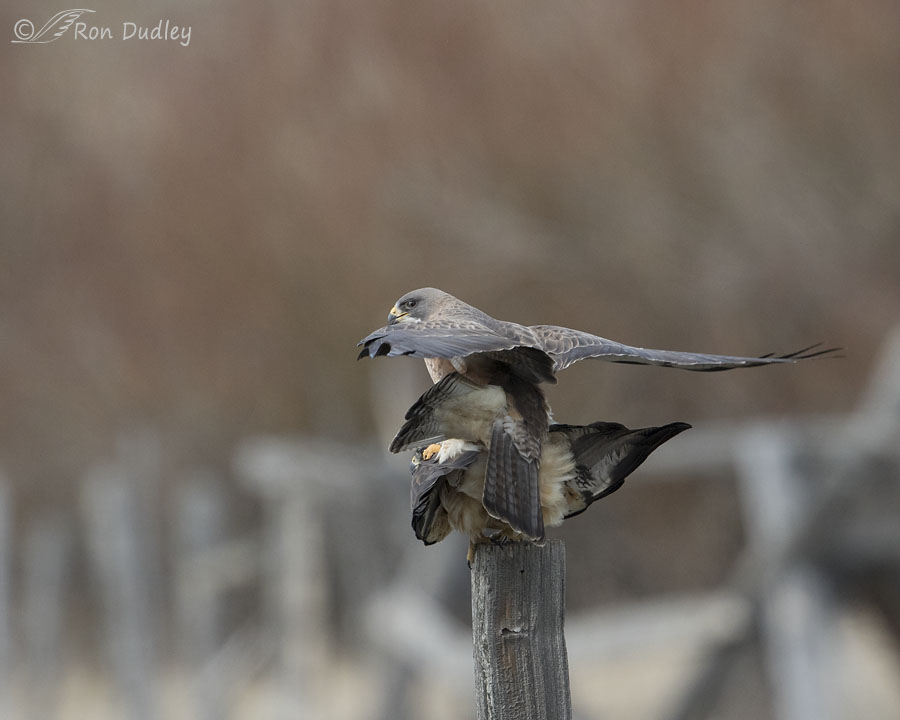
they apparently made cloacal contact…
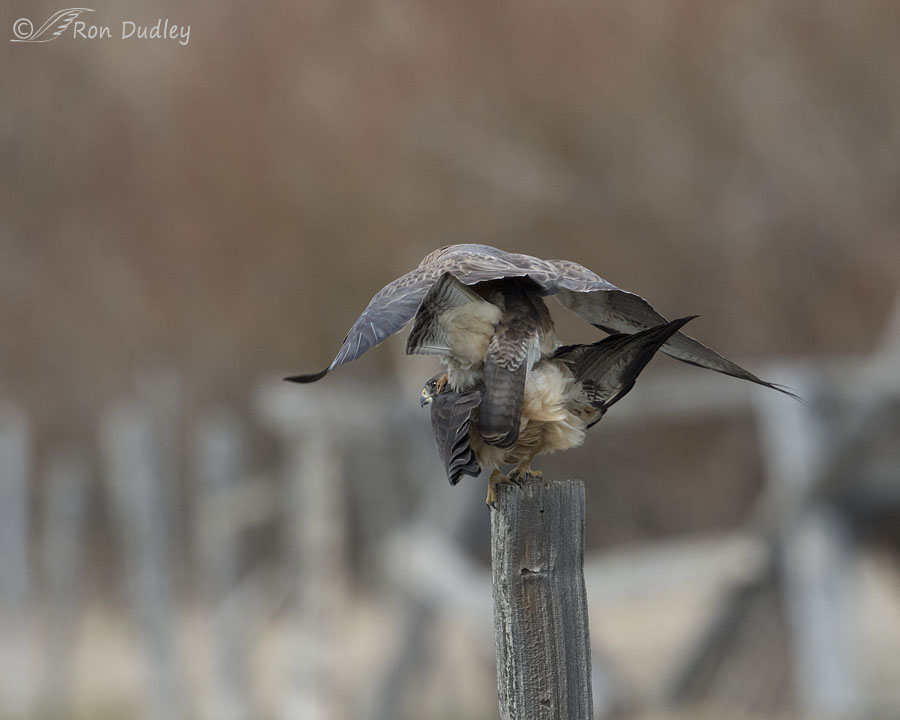
several more times before…
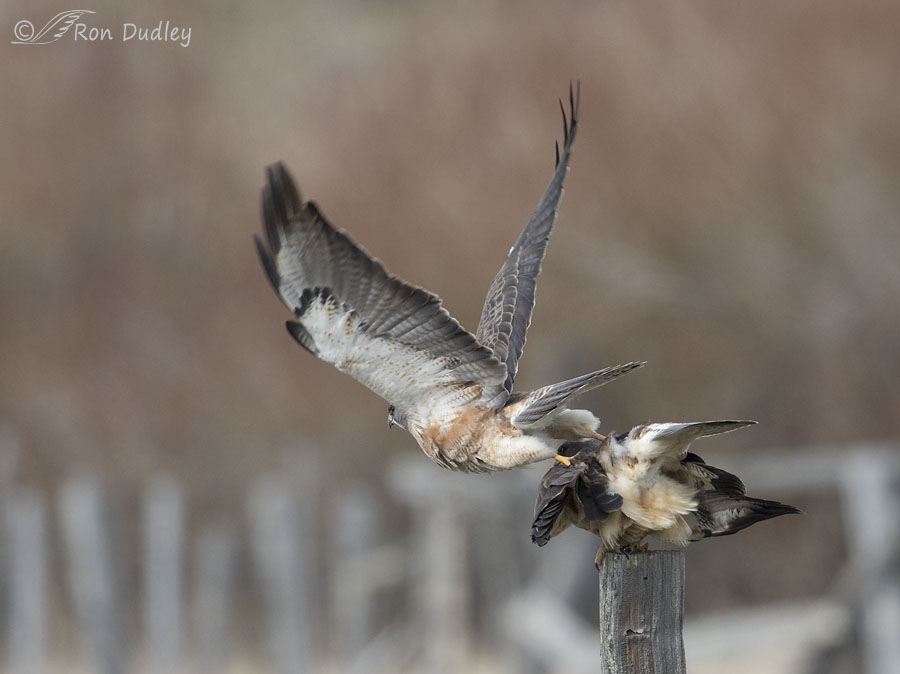
the male pushed off…
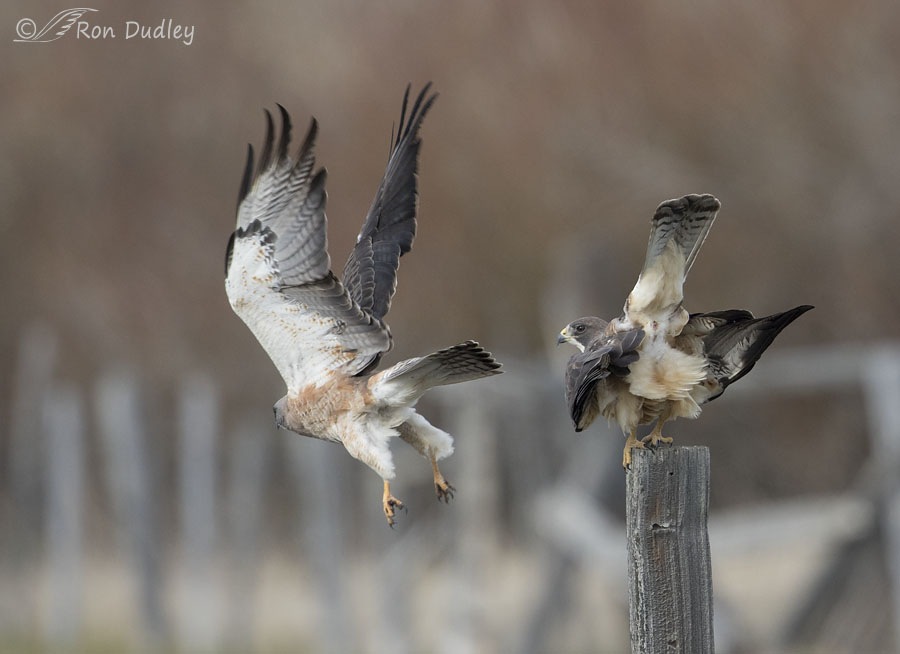
and flew away.
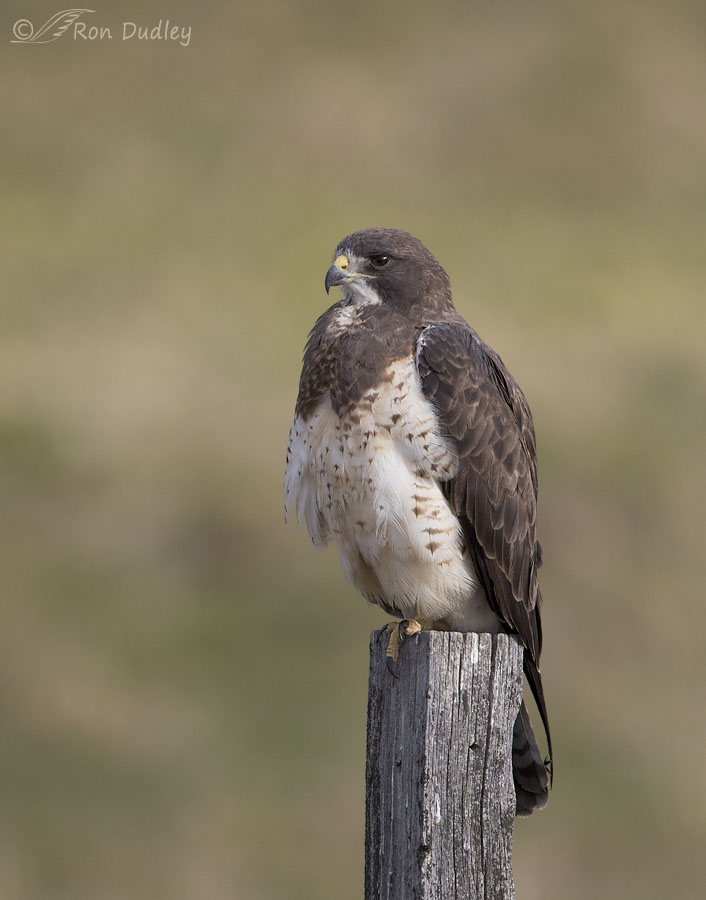
I thought some readers might appreciate a better look at both birds (both images were taken soon after mating). The female is a light morph…
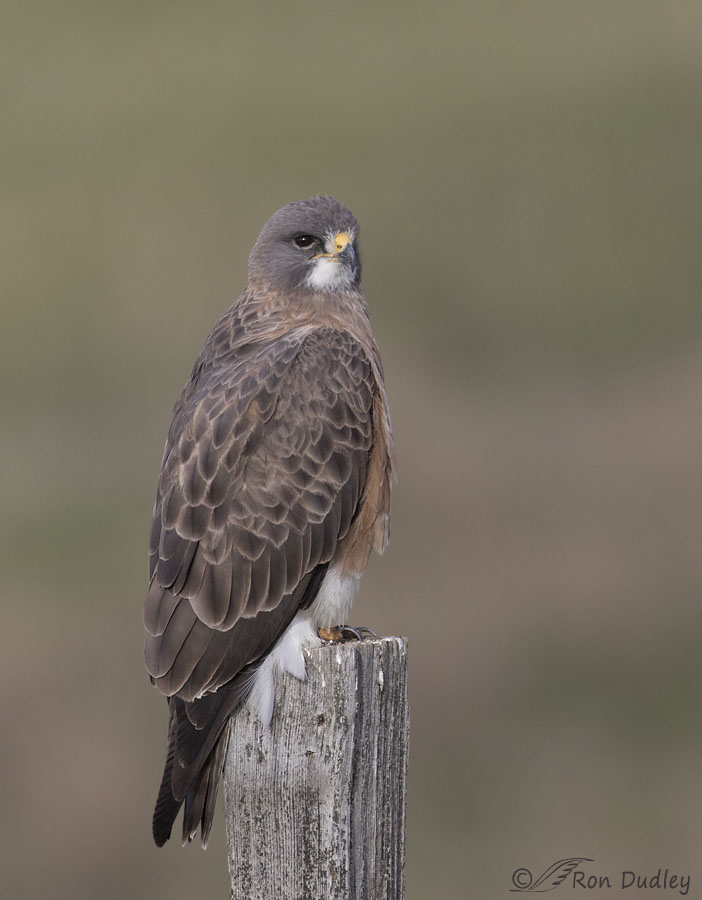
and the male is an intermediate morph (note the extensive rufous color on his breast and belly). I now know where their nest is and later this summer, after the presumed chicks fledge, I’ll be interested in seeing what color phase(s) the youngsters turn out to be.
A couple of these images may be a little too clinical for some of my readers and if so I apologize. But with my biology/zoology background and intense interest in bird behavior, this series of images is right up my alley.
Ron


Sensational series, thanks for sharing Ron!
Charlotte Norton
Great series, Ron! Always amazes me how they can “get the job done” with the gyrations necessary……
Yeh, we, in theory, have some spring coming starting tomorrow. Hopefully not TOO warm, TOO fast so our meager snowpack. Of course, S and west of us they’re worried about flooding. Had a building collapse in Red Lodge yesterday from all the snow……..
Judy, “too warm, too fast” is exactly what I’m worried about. With all the snow we have that’s a recipe for serious flooding.
This voyeur is grateful.
And I hope your Spring is on her way.
Me too, EC. Me too. Thanks.
Very nice series, thanks for re-posting. They are both very beautiful birds!
Agreed. Thanks, April.
Wow !!!!! What an impressive and outstanding mating series. Only birds could perform the task on a small perch like that. Always amazed at how quickly birds and wildlife perform the necessary task needed to keep their species going. So fortunate that you were there, and then to have both the camera and the skills to record such a beautiful moment of nature.
We did not have your snow, but pretty much the same cold and same rising temperatures.
“We did not have your snow”
I wish I could donate some of it to you Everett. Thank you.
Beautiful pictures and birds. I hope this year is as rewarding as that one was.
Me too, John. That would be nice!
Wow, what a great series, Ron! Thanks for all these. I never think of Swainson’s hawks without thinking of the movie, “The Big Year.“ It was actually quite an entertaining movie, I thought, but also an opportunity for catty birders to find mistakes. My favorite was the one where the guys are skiing and there’s a shot of a bird in a tree, and it’s a Swainson’s hawk. Meanwhile, that bird would really be eating insects in South America as you point out. Anyway, thanks for the smile. Hope spring comes for you soon.
Ellen, I saw that movie but it’s been so long I don’t remember the mistake.
No wonder the ladies are larger than the guys. What a hassle!
Interesting observation, Sallie.
I can’t think of a better use of an old fencepost. From South America to Beaverhead county of all places. And there you were to document the romantic tryst. Kudos to you all.
My rhubarb is already over a foot high. Looks like you’ll be catching up soon.
Lyle, a few days ago I noticed that my rhubarb was barely peeking out of the ground. Then another foot of snow…
Thanks for reposting Ron. Really appreciated the ‘clinical’ shots. Found them interesting. But for artistic and aesthetic merit, I like #3.
Would like to see some of the fledgling photos if you have them.
Michael. I can’t remember if I ever saw the fledglings. Which would have involved another trip to Montana.
Great series and biology review! Good luck digging out this morning. Or just wait for the weekend melt!
Thanks, Brett. These days I don’t do much “digging”. We’ll see how it goes.
Wonderful series of pics! Such clear and beautiful photos. Amazing how acrobatic they are. I’m with you – not too clinical at all!
Jo
“not too clinical at all”
Good to know, Jo. Thanks.
Yes, a wonderful post! Merci beaucoup!
Je t’en prie, Mary.
Really enjoyed this post — very informative!
Good. Thanks, Laurie.